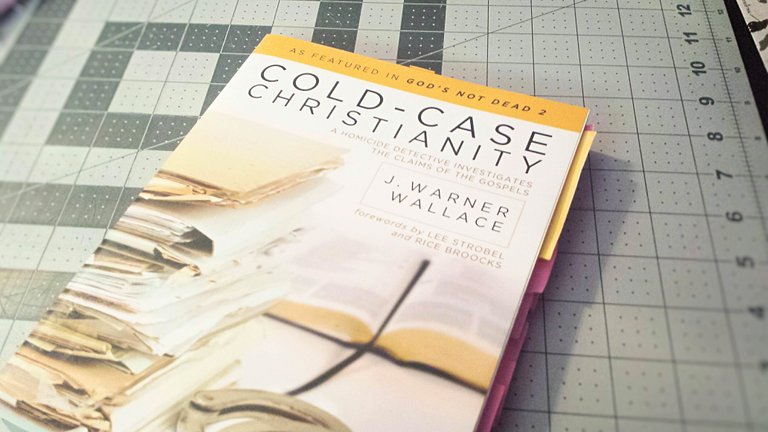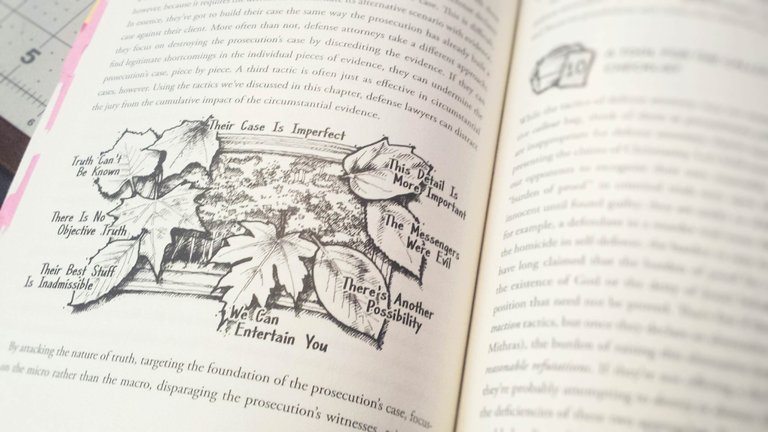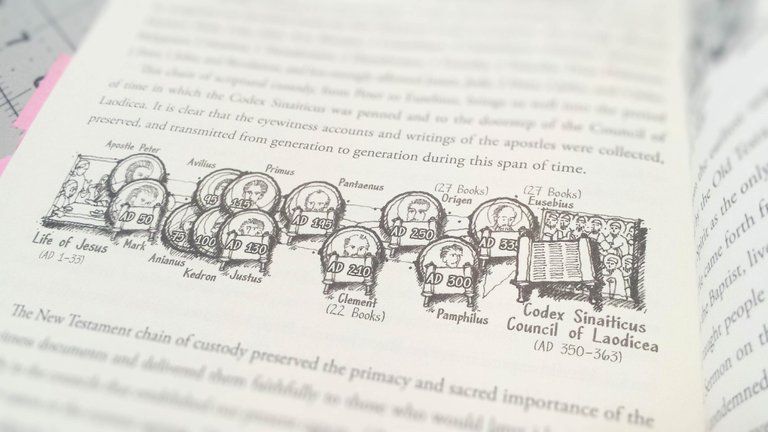
What this book is about:
Written by an L. A. County homicide detective and former atheist, Cold-Case Christianity examines the claims of the New Testament using the skills and strategies of a hard-to-convince criminal investigator.
Christianity could be defined as a “cold case”: it makes a claim about an event from the distant past for which there is little forensic evidence. In Cold-Case Christianity, J. Warner Wallace uses his nationally recognized skills as a homicide detective to look at the evidence and eyewitnesses behind Christian beliefs. Including gripping stories from his career and the visual techniques he developed in the courtroom, Wallace uses illustration to examine the powerful evidence that validates the claims of Christianity. A unique apologetic that speaks to readers’ intense interest in detective stories, Cold-Case Christianity inspires readers to have confidence in Christ as it prepares them to articulate the case for Christianity. (source)
My thoughts:
I heard about this book early last year and it sounded like an interesting book—a cold-case detective examining the validity of the Bible and its claims. I was excited whenever I finally got my hands on it and dove right in.
Usually, whenever someone is a Christian apologist, it seems like they usually focus on the morality questions of this day and age or the creation of the world from what I have seen. I don't think I have ever really heard anyone debate on the validity of the Bible (besides internet people, but that usually seems to turn into a mud-slinging contest.) So this book looks more into the Bible, who wrote it, the dates the New Testament books were written, whether or not they are reliable, etc. although there is some talk of creation and morality. That isn't the main thread though.
J. Warner Wallace starts the book off by first briefing us on the history of his job. Certain cases are examined and he leads us down the paths to which we need to take to discover the truth about these real-life cold cases. After the foreword and preface, the book immediately starts off with this section "Learn How To Be A Detective." This lays the groundwork for finding the truth on the Gospels, as we can use those same principals for our investigation of the New Testament.
One of my favorite chapters in the beginning was the "Learn How To Infer" chapter. Wallace goes through several alternative scenarios about the death / resurrection of Jesus Christ. He covers whether or not the disciples could have been delusional, and whether or not they could have lied about the resurrection. This chapter looked at the common objections people have to the resurrection, and the answers to these objections.

The author also goes over a little bit about what he calls "design evidence." There is a section on this where he talks about the appearance of design in life, the complexity of DNA, and objective morality. One of the best quotes in my opinion in the book came from this section.
"Darwinian evolution has great difficulty accounting for the existence of objective moral obligations for two reasons. First, if we live in a purely natural, physical world governed by the "cause and effect" relationships between the chemical processes of our brains, "free will" is an illusion, and the idea of true moral choice is nonsensical. How can I, as a detective, hold a murderer accountable for a series of chemical reactions that occurred in his brain when he didn't have the freedom to escape the causal chain of biological events?" Pg. 67
One thing I liked about this book was that the author acknowledged that parts of the Bible have been added and/or altered without the knowledge of the original authors (that we know of, anyways) instead of being someone who will not accept that the Bible was written and copied by fallible humans and has errors. Wallace also explains that because we are able to recognize these inconsistencies, it helps us know what is consistent and original in these texts.
One point that was made about historical documents—many of the writings of historical authors do not have nearly as many early copies as the Bible has, so we are able to find discrepancies easily in the Bible. The older copies are more likely to be more accurate, while some of the later ones with altered passages seem out of character to the writers and original copies and can therefore be ruled out as false or not exactly original.
There was a section on conspiracy theories as well which covers the factors needed to successfully pull off a conspiracy. I don't agree with everything in this chapter, but I do appreciate that this was covered in relationship to whether or not the Gospels are really just one big conspiracy theory.
Some of the topics covered: the dating of the Gospels/NT, the "chain of custody" in reference to who had the Gospels in their care until the Council of Laodicea where certain books were canonized, who else (non-friendly sources) besides the apostles were confirming events told of in the NT, and parts of the Bible that appear to have been added by someone other than the original author. Here is a picture of the drawing laying the time-line of custodians of the early manuscripts of the New Testament. (This book has a lot of neat drawings in it to help lay things out visually.)

J. Warner Wallace also covers many objections/suspicions that people might have about the Gospels/those who wrote the Gospels. A few of those were: the disciples were fooled by an impostor, the authors of the gospels are anonymous, there are many copyist insertions in the Bible, and there are biblical narratives that differ from one another.
I have bookmarked many pages in this book as it is full of excellent points. This book would be great for anyone interested in Christian apologetics or for someone who wants to know whether or not the Bible/Gospels is what it claims to be. If you are thinking of suggesting this book to an atheist, I would say that this book isn't really tailored to an atheistic point of view, as the author does talk about things more like he is speaking to Christians, and there is a bit of how Christians should be responding to criticisms of the Bible, Christianity, how critics may respond, etc. But, if the atheist is already reading Christian literature to see what the big deal is, they probably won't mind all the scriptures, and the sections where J. Warner Wallace discusses what you must do once you are a Christian, how to be prepared for questions people ask Christians, etc.
Wallace did an excellent job being precise and methodical in writing this book. He does not rush through anything but carefully goes over many of the important questions people have about the New Testament. He helps the reader search for the proof, examine those who claimed to be the first-hand witnesses to test their reliability, and also prepares his Christian readers for some of the hard questions they may be asked one day. It gets a 4 out of 5 stars from me!
"But in your hearts set apart Christ as Lord. Always be prepared to give an answer to everyone who asks you to give the reason for the hope that you have. But do this with gentleness and respect, keeping a clear conscience, so that those who speak maliciously against your good behavior in Christ may be ashamed of their slander. "
– 1 Peter 3:15-16

Got the new edition of Evidence That Demands a Verdict. It's similar. The bibliography alone is 50 pages. Looking forward to reading that.
It definitely sounds similar, and that is an impressive bibliography for sure. I hope you enjoy reading your new book! :D
Congratulations @glowgirl! You received a personal award!
Click here to view your Board of Honor
Do not miss the last post from @steemitboard:
Congratulations @glowgirl! You received a personal award!
You can view your badges on your Steem Board and compare to others on the Steem Ranking
Vote for @Steemitboard as a witness to get one more award and increased upvotes!